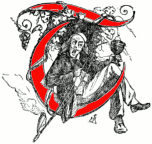
his, then, is one of the earliest lessons which the student of art has to learn. The first lesson t of all is that art is for pleasure; the second is that the pleasure of art stands in no sort of opposition to truth. We in England have especial reason to bear this in mind, for we are most familiar with the doctrine that art is for pleasure, as it has been put by Coleridge; and it is not unlikely that some of the repugnance which the doctrine meets in minds of a certain( order may be due to his ragged analysis and awkward statement. He rather prided himself on his anatomy of thought and expression, but he hardly ever made a clean dissection. Mark what he says in this case. He says that the true opposite of poetry is not prose, but science, and that whereas it is the proper and immediate object of science to discover truth, it is the proper and immediate object of poetry to communicate pleasure. This is not right.
Coleridge has defined science by reference to the external object with which it is engaged; but he has defined poetry hy reference to the mental state which it produces. There is no comparison between the two. If he is to run the contrast fairly, he ought to deal with both alike, and to state either what is the outward object pursued by each, or what is the inward state produced by each. He would then find that, so far as the subject-matter is concerned, there is no essential difference between poetry and science, it being false to say that the one possesses more of truth than the other; and he would define the difference between the two by the mental states which they severally produce—the immediate object of science being science or knowledge, while that of poetry is pleasure. To say that the object of art is pleasure in contrast to knowledge, is quite different from saying that it is pleasure in contrast to truth. Science gives us truth without reference to pleasure, but immediately and chiefly for the sake of knowledge; poetry gives us truth without reference to knowledge, but immediately and mainly for the sake of pleasure. By thus getting rid of the contrast between truth and pleasure, which Coleridge has unguardedly allowed, a difficulty is smoothed away from the doctrine that the end of art is pleasure, and criticism the anlysis of the art of pleasure. [I.109-11]
Bibliography
Dallas, Eneas Sweetland . The Gay Science. 2 vols. London: Chapman and Hall, 1866. A HathiTrust online version of a copy in the Harvard University Library. Web. 12 May 2022.
Last modified 12 May 2022